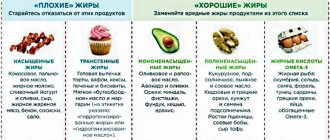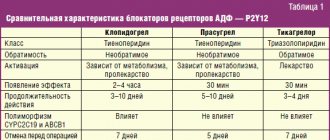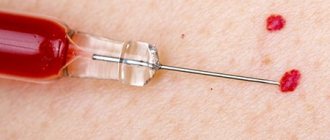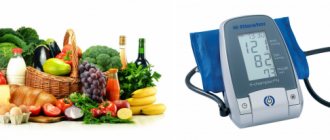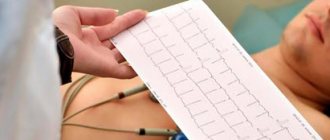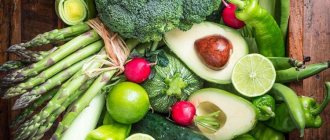Heart disease remains the leading cause of death worldwide. They are caused by plaques in the arteries and blood vessels. They block the flow of nutrients and oxygen to the heart muscle. Their formation is triggered by several factors, two of which you cannot control - age and heredity. But you can save your life by eliminating trans fats, sugar and other fast carbohydrates from your diet.
Heart and nutrition - the connection between food and the cardiovascular system
According to WHO, coronary disease is the world's leading killer. It is more susceptible to women aged 55 years and men aged 45 years. Risk factors for heart disease include:
- unhealthy diet, obesity;
- insulin resistance and diabetes;
- heredity;
- high cholesterol and blood pressure;
- low physical activity;
- alcohol consumption, smoking;
- clinical depression.
People with diabetes and excess weight are twice as likely to suffer from heart disease - there is a direct link between blood glucose levels and blood vessel health. Glucose increases after eating any food, but some foods do not cause sudden increases and contain useful compounds that have properties similar to drugs.
How should you eat?
Products for blood vessels and the heart should help lower blood pressure, reduce swelling, and eliminate shortness of breath. Nutrition should prevent the development of atherosclerosis, heart attack and stroke.
The diet should include foods that cleanse the blood vessels of the brain and strengthen the heart muscle. They must contain:
- potassium is an essential trace element that removes fluid, reduces blood pressure, improves heart function and regulates its rhythm;
- dietary fiber – removes heavy metal salts and prevents bad cholesterol from being absorbed in the gastrointestinal tract;
- magnesium – dilates blood vessels in the brain, reduces blood pressure, prevents the development of spasms;
- polyunsaturated omega-3 and omega-6 fatty acids;
- calcium – helps remove cholesterol;
- folic acid – prevents the development of cerebral atherosclerosis;
- vitamin A – strengthens capillary walls;
- B vitamins (B1 regulates heart contraction, B6 relieves vascular spasms);
- Vitamin E – prevents thrombus formation, relieves vascular inflammation.
Foods good for the heart and blood vessels
Nutritionists advise eating more often (up to 5-6 times a day), but in small portions. At night it is useful to drink kefir, which speeds up the digestion process and helps eliminate harmful substances.
For breakfast, it is recommended to eat complex carbohydrates: durum wheat pasta, grain bread, cereals. For lunch and dinner - poultry, fish, seafood, cottage cheese. For drinks, preference should be given to plain water, green tea, herbal infusion, and natural juices without sugar.
Cardiologists believe that people with heart and cerebral vascular diseases should adhere to a Mediterranean diet, that is, seafood, fish, vegetables, fruits, herbs, and olive oil should be included in the diet. Salt should be reduced as much as possible so that fluid is not retained in the body and blood pressure does not increase. It is advisable to give up animal fats, which not only increase the level of bad cholesterol and damage blood vessels, but also contribute to weight gain.
5-10: Vegetables
Fruits, like vegetables, have scientifically proven cardioprotective properties. When choosing vegetables, it is also important to pay attention to seasonality. Experts do not recommend eating yellow and orange bell peppers in winter. Some of the most heart-healthy vegetables include:
Tomatoes
Tomatoes prevent blood clots and prevent the development of atherosclerosis , anemia, and heart attacks (evidence).
In addition, by consuming tomatoes, the risk of developing coronary disease is reduced, and the development of tachycardia and hypertension is prevented by normalizing blood pressure.
Tomatoes protect against heart attacks and improve the functioning of the nervous system, normalizing the functioning of the heart and regulating its rhythm.
Garlic
Garlic contains unique substances, including allicin, inulin, lysine, ajoene and others.
Consumption of garlic reduces blood pressure, relaxes blood vessels and improves blood flow. Garlic also helps lower blood cholesterol levels (evidence).
Onion
Onions have a vasodilating effect. The elements contained in the oil cleanse blood vessels and improve cholesterol metabolism .
Onions prevent the development of atherosclerosis and help strengthen the walls of blood vessels (evidence).
Also, due to the consumption of onions, blood thins and hemoglobin levels normalize.
Pumpkin
Due to the content of potassium, vitamins A, and carotenes, the following processes occur when consuming pumpkin:
- the process of hematopoiesis improves;
- blood pressure normalizes;
- the work of the heart muscle is strengthened and normalized.
Pumpkin has a beneficial effect on the heart, helps lower blood pressure and lowers unwanted cholesterol, also cleansing the walls of blood vessels (evidence). By including pumpkin in the diet, symptoms of arrhythmia, tachycardia and angina are eliminated. Pumpkin should be used for prevention and in cases of atherosclerosis and hypertension. Pumpkin fruits also improve blood circulation.
Pepper
Red hot peppers are most beneficial for the heart, thanks to capsaicin in its composition, which has a very powerful counteraction to the development of coronary artery disease and hypertension (evidence).
In addition, pepper prevents the development of arrhythmia, normalizing heart rhythm, and has a very high content of antioxidants necessary for modern man . Black pepper is also useful, and in season - sweet bell peppers.
Experts recommend refraining from eating yellow and orange bell peppers in winter, since their cultivation uses pesticides that are dangerous to the human body.
Horseradish
Horseradish is rich in panthenolic acid, riboflavin, carotene, phosphorus, magnesium, zinc, and copper. Both the root and leaves of horseradish are good for the heart.
Consumption of horseradish reduces the content of dangerous cholesterol, normalizes blood pressure, saturates the heart with the potassium it needs, and reduces the risk of heart attacks, strokes and other diseases.
The best foods for the heart and blood vessels
This list includes products that clean blood vessels and strengthen the heart muscle. Most of them are of plant origin.
Garlic
Cardiologists believe that one clove of garlic a day reduces the risk of developing heart and vascular diseases. The hydrogen sulfide and nitric oxide contained in it reduce vascular tone, resulting in a drop in blood pressure. In addition, garlic is a natural antibiotic that protects the body from acute respiratory viral infections and influenza.
Grapefruit
Contains glycosides that normalize digestive processes, prevent the development of atherosclerosis, and improve the functioning of the heart and vascular system.
Whole grains
Whole grains contain a very heart-healthy element - potassium. Porridge, bran, and products made from wholemeal flour help remove cholesterol from the body.
Apples
It is useful for people with cardiovascular disorders to eat apples and even arrange apple fasting days to avoid gaining excess weight. Pectin and vegetable fiber help get rid of cholesterol and increase the elasticity of blood vessels. Apples are a source of microelements and vitamins.
Pomegranate
Doctors consider pomegranate one of the best foods for the heart and blood vessels. This fruit thins the blood, lowers cholesterol levels, and clears plaque from blood vessels. It is recommended to eat pomegranate fresh.
Pomegranate is an indispensable product for vascular and cardiac pathologies.
Tomatoes
They are rich in magnesium, which strengthens the heart muscle, and the antioxidant lycopene, which maintains the tone of blood vessels.
Salmon and salmon
The high content of omega-3 fatty acids makes these types of fish indispensable for maintaining healthy blood vessels and the heart. Regular consumption of salmon reduces the likelihood of developing a heart attack, normalizes blood pressure and blood clotting. Salmon contains the antioxidant astaxanthin, which helps preserve memory for many years.
Nuts
The healthiest ones are almonds and walnuts. They contain the most monounsaturated fats. Nuts quickly satisfy hunger and help absorb fiber.
Oatmeal
Oatmeal in the morning saturates the body with folates, potassium, and omega-3 fatty acids. Oatmeal keeps blood vessels toned and helps lower cholesterol.
Olive oil
Doctors have long noticed that in countries where exclusively olive oil is used for cooking, the mortality rate from heart attacks is very low. Monounsaturated fats contained in oil help get rid of cholesterol plaques and fight blood clots. Virgin oil is especially useful.
Berries
Reduce the risk of developing pathologies of the heart and blood vessels. You can eat any berries to your taste: strawberries, blueberries, blackberries, raspberries, strawberries, cherries, black and red currants and others.
Fresh berries should be present in the diet of heart patients
Pumpkin
Pumpkin contains beta-keratin, potassium, and vitamin C, which prevent the development of atherosclerosis. It normalizes blood pressure and water-salt balance, cleanses blood vessels.
Soybeans
Supplies proteins to the body and lowers the level of bad cholesterol. You need to use only natural, but not genetically modified products.
bitter chocolate
Chocolate with a cocoa content of at least 70% is good for the heart. Thanks to the flavonoids found in cocoa beans, it improves the quality of blood cells, prevents blood clots and thus reduces the likelihood of developing cardiovascular diseases. But it is not recommended to eat more than two or three pieces of chocolate a day.
Dark chocolate reduces the risk of developing cardiovascular diseases
Mushrooms
They contain ergotianine, an antioxidant that stimulates the immune system, improves blood composition, and prevents the development of vascular and heart diseases. In addition, mushrooms contain a lot of vitamin B and D, fiber, protein, magnesium, phosphorus, potassium, iron, zinc, manganese, and selenium.
Seeds
To strengthen the heart muscle and blood vessels per day, it is enough to eat one handful of seeds, which contain omega-3 and omega-6 fatty acids.
Legumes
Lentils, beans and chickpeas are especially healthy. They are rich in fiber, calcium, omega-3 fatty acids.
Avocado
To reduce bad cholesterol and increase good cholesterol, you need to constantly add pieces of this exotic fruit to salads and meat dishes. Avocado contains enzymes that help absorb carotenoids.
Avocado is a fruit that is good for blood vessels and the heart.
Linseed oil
It contains omega-6 and omega-3 fatty acids. It can be used for cooking or added to food in small quantities, such as salads or cereals.
Harmful products
It is important to know not only about foods that are good for the heart and blood vessels, but also about foods that are harmful. If you have heart disease, it is necessary to limit the consumption of some foods, and it is advisable to avoid some completely. Doctors consider the following to be harmful:
- Salt. When consumed in excess, blood pressure increases, and this negatively affects the condition of blood vessels. Salt retains fluid, which increases the load on the heart.
- Fried food. Leads to the deposition of cholesterol on the walls of blood vessels and increases blood pressure.
- Meat. According to doctors, frequent use may cause problems with the heart and blood vessels. There is no need to completely give up meat (veal, lean beef, poultry), but you should eat it no more than twice a week.
- Alcoholic drinks. They cause vascular spasms, which can lead to oxygen starvation.
- Products with preservatives. The harmful substances they contain worsen the condition of the walls of blood vessels.
- Strong coffee and tea.
- Carbonated drinks.
- Sugar and confectionery.
The main principles of healthy eating
- Limit consumption of animal fats. Include only lean meat (beef, veal, white poultry) in moderation in your diet.
- Reduce the amount of dairy products.
- Vegetable side dishes should be prepared for breakfast, lunch and dinner. They should make up half the serving. To prepare, use several types of vegetables that can be baked, stewed or boiled.
- Your diet must include foods containing omega-3 fatty acids. They are found in fish, seeds, nuts, and vegetable oil.
- Limit salt so that fluid does not retain in the body and there is no unnecessary stress on the heart.
- Avoid fried, smoked and spicy foods.
- Avoid alcohol, caffeine, canned and refined foods.
What is possible
Article on the topic
Assess the risks.
How to get examined for hypertension The list of permitted foods is wide enough to meet the recommended caloric intake of the diet of 2300–2600 calories per day. The list of products allowed by therapeutic diet number 10 includes:
- Eggs in any form, but no more than one per day.
- Whole milk, but only if it does not cause flatulence, cream, lactic acid drinks, low-fat types of sour cream and cottage cheese.
- Cereals, pasta and legumes, which are recommended to be cooked in water and milk.
- Vegetables, for example, can be safely eaten boiled and baked: potatoes, beets, carrots, white cabbage and cauliflower; cucumbers, tomatoes, carrots, lettuce, green onions, dill, and parsley are allowed raw.
- Vegetarian soups with potatoes, vegetables, cereals, as well as milk and fruit soups.
- Sweets in the form of raw berries and fruits, as well as compotes, jelly, jellies, mousses, milk creams, jam, honey, non-chocolate candies, marshmallows, marshmallows.
- Weak tea, surrogate coffee, vegetable and fruit juices, rosehip decoction.
- Unsalted butter and vegetable oils for use in cooking.

